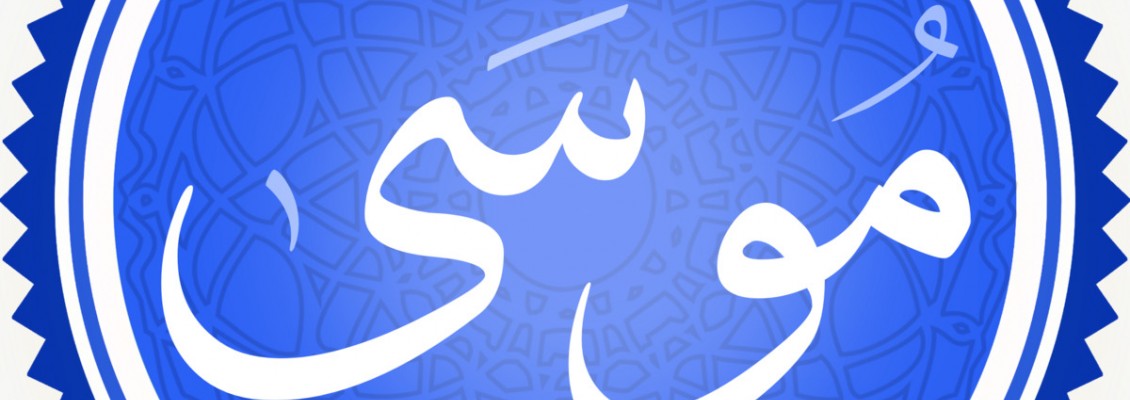
PROPHET MOSES
Moses (pbuh) is a great prophet and an important leader according to Judaism, Christianity, and Islam, with his story detailed in the Torah and the Holy Quran. He is the prophet whose name is mentioned the most in the Holy Quran. In the Quran, Moses is described as both a messenger and a prophet, characterized by sincerity (The Quran 19:51). He was chosen by Allah and honored with divine messages (The Quran 7:144). She has been granted the honor of being as close to Allah as a whisperer (The Quran 19:52). He was chosen by Allah (The Quran 20:13). He was given love by Allah and was raised under His supervision (The Quran 20:39). Allah chose him as His messenger (The Quran 20:41). Described as a trustworthy and honorable messenger (The Quran 44/17-18), Moses holds a high position in Allah's eyes (The Quran 33:69) and is depicted as strong and reliable (The Quran 28:26). He is celebrated as one of the faithful servants of Allah (The Quran 37:121-122). Also, Moses (pbuh) is a prophet who gives the good news of Muhammad because it is written in the Torah that an illiterate prophet will come. (The Quran 7:157)
Moses (pbuh) was protected and blessed by God from his birth. The pharaoh of the time feared a prophecy that a child from the Israelites would threaten his reign, leading him to order the killing of all Israelite male infants. To save her son, Moses' mother followed God's guidance and placed him in a chest on the river, entrusting him to Allah's care. Miraculously, Moses was found and taken into the pharaoh's palace, where he was raised by his own mother at Allah's arrangement because he refused to nurse from other women. This is mentioned in the Qur’an: ‘’When We inspired your mother with this: ‘Put him into a chest, then put it into the river. The river will wash it ashore, and he will be taken by (Pharaoh), an enemy of Mine and his. And I endeared you with love from Me (Oh Moses) so that you would be brought up under My (watchful) eye.’’ (The Quran 32:38-39). These verses exemplify submission to Allah and His divine protection. God's love and watchful eye guided Moses' upbringing in the palace, demonstrating how Allah blesses and supports His devoted servants in the best possible ways.
When Moses was young ages, he had a good heart, and he was true and loyal to his people. His wisdom and knowledge enabled him to skillfully resolve conflicts. Moses (pbuh) accidentally killed an Egyptian while defending someone from his own people, and he deeply regretted this action. In repentance, Moses pleaded to Allah, saying, "My Lord! I have definitely wronged my soul, so forgive me." Allah, in His infinite mercy and forgiveness, pardoned Moses for this mistake (The Quran 40:16). After the incident where Moses (pbuh) intervened in a fight and accidentally killed an Egyptian, the man Moses helped later revealed Moses' involvement in the killing. Fearing for his life, Moses fled to Midian, leaving behind everything he had. In Midian, he encountered two girls struggling to water their herd. Out of kindness, Moses helped them, and then sought provision from Allah in prayer (The Quran 40:24). Moved by Moses' plight, the father of the girls invited him home and listened to his story. He offered Moses refuge and the opportunity to marry one of his daughters in exchange for eight years of work. This part of Prophet Moses’ life and these verses demonstrate Moses' resilience in the face of adversity and Allah's provision in unexpected ways.
Moses (pbuh) left Midian with his family and received prophethood near Mount Tur. Given miracles, he and Aaron confronted Pharaoh to free the Israelites. Despite growing up in Pharaoh's palace, Moses asserted his role as Allah's messenger with miracles. Pharaoh summoned magicians to challenge Moses, but Moses prevailed. Pharaoh refused to release the Israelites, leading to disasters in Egypt. Moses led the Israelites out, and when pursued by Pharaoh's army at the sea, he split it with his staff. The pursuing soldiers drowned as the sea closed, symbolizing faith's victory over oppression.
After crossing the sea, the Israelites arrived at Mount Tur. Moses (pbuh) was called to the mountain, leaving his brother Aaron in charge. When Moses expressed a desire to see Allah, he was directed to look at the mountain, causing it to crumble. Moses was then given Tablets containing divine commands. Upon returning, Moses found his people worshiping a calf, leading him to angrily break the Tablets. Subsequently, seventy repentant individuals were chosen from among his people. Moses later urged his people to enter the promised land, but they refused and were condemned to wander in the desert for forty years. This narrative concludes Moses' story as told in the Quran, highlighting moments of divine revelation, moral challenges, and the consequences of disobedience and faithlessness.
The story of Moses (pbuh) from the Quran offers important lessons for believers. It highlights the importance of submitting to Allah's will with a firm trust and patience, even in the face of adversity. Moses' repentance after unintentional wrongdoing teaches us about seeking forgiveness with sincerity. His leadership exemplifies the responsibilities of guiding and protecting communities with justice and compassion. The story also warns against idolatry and disobedience, highlighting the consequences of straying from Allah's guidance. Ultimately, Moses' narrative inspires us to uphold righteousness, remain steadfast in faith, and learn from the trials and triumphs of prophetic wisdom and divine guidance.

Leave a Comment